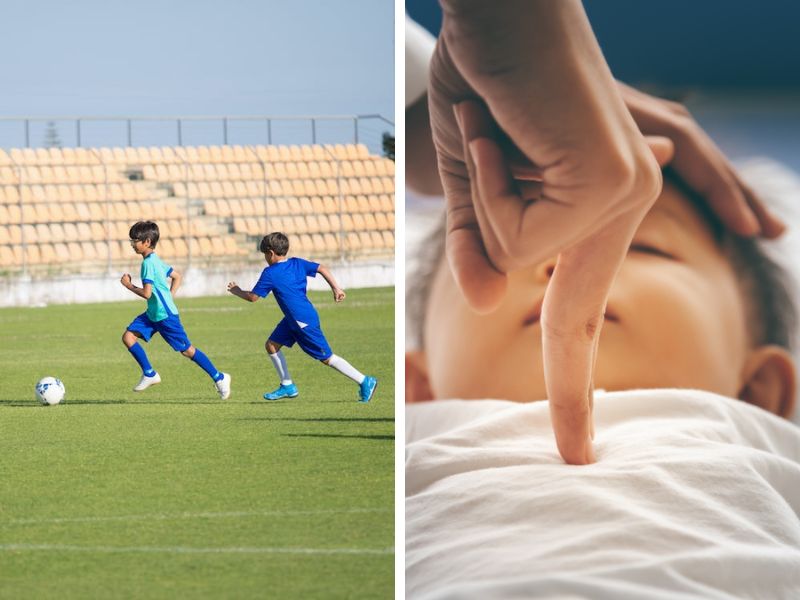There is no question that all parents of aspiring athletes are concerned about their child’s safety. In the case of Damar Hamlin, we cannot help but ask questions when events like that take over the headlines.
There is still no clear explanation for what caused the Buffalo Bills player’s heart condition. Accidents can happen to anyone. The Children’s Hospital of Philadelphia reports that over 2,000 children and teens die from sudden cardiac arrest yearly in the U.S. About 3% to 5% of all deaths in children aged 5-19 result from sudden cardiac arrest.

Image Credit: Pexels/Kampus Production & Shutterstock/Anatta_Tan
Despite being sudden and unpredictable, there are ways to reduce a child’s risk of a potentially fatal cardiac arrest. Dr. Gul H. Dadlani, division chief of cardiology at Nemours Children’s Health in Orlando, Florida, said, “Everyone has some risk.” The same thing could happen to a high school student.
Lowers Risk Of Sudden Cardiac Arrest With Annual Physicals
Physical evaluations are essential to detect heart abnormalities before they lead to sudden cardiac arrest. Dadlani said some states require a physical before participating in student sports, but few need an electrocardiogram, commonly known as an ECG or EKG, which records the heart’s electrical activity. No matter if your child participates in sports, you should schedule a checkup every year.

Image Credit: Tom Williams, Public domain, via Wikimedia Commons
Symptoms Of Cardiac Arrest In Children
Some heart conditions that cause cardiac arrest can be detected with an EKG, including:
- According to C.S. Mott Children’s Hospital at the University of Michigan Health, hypertrophic cardiomyopathy causes the heart muscles to thicken, making it difficult for blood to leave the heart
- Dadlani explained that ion channelopathy occurs when an abnormal protein conducts electrical energy in the heart muscle.
Heart attacks in children can also be caused by coronary artery abnormalities, which EKGs cannot detect.
Providing CPR Education And AED Access
According to the American Heart Association, most states require schools to train students in CPR before high school graduation. Health experts say it never hurts to refresh. Dadlani said without cardiopulmonary resuscitation, or CPR, the chance of survival is as low as 10%.